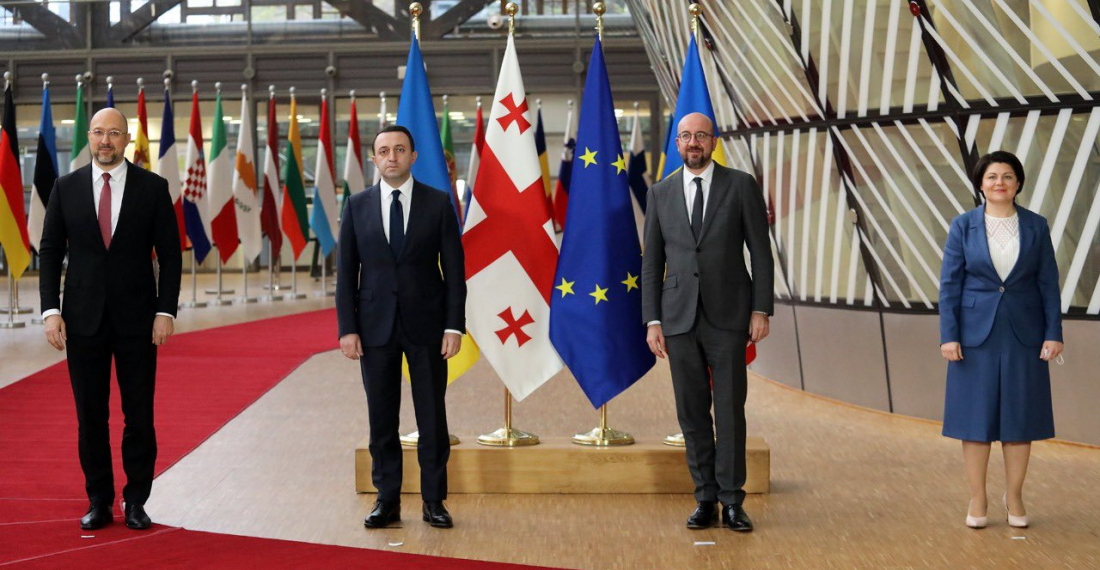The prime ministers of Georgia, Moldova and Ukraine were in Brussels on Tuesday (30 November) for talks with EU leaders ahead of a key summit between Eastern Partnership countries scheduled for 15 December.
Georgian prime minister Irakli Garibashvili, Ukrainian prime minister Denys Shmyhal, and Moldovan prime minister Natalia Gavrilița met EU Council president Charles Michel. A statement by the Georgian government later said that "the meeting discussed the upcoming December 15 Eastern Partnership Summit and emphasized that, importantly, its declaration must reflect issues and expectations prioritised by the Associated Trio countries. The Prime Ministers of the three countries reaffirmed their common position that the summit should offer the partner states new opportunities on the path toward further EU integration based on the differentiation and more for more principles. The parties also discussed the priorities and directions important in terms of deeper cooperation between the three countries and the EU."
The statement also added that the Prime Minister of Georgia. Irakli Garibashvili proposed an initiative to hold regular meetings between the EU and the Associated Trio's leaders, with the Associated States taking turns as hosts.
Irakli Garibashvili also underlined the Georgian Government's ambitious goal of officially applying for full EU membership in 2024. He pointed out that it is paramount for the summit's final declaration to reflect Georgia's European choice and firm support for the country's territorial integrity and sovereignty, with connectivity being another priority direction for Georgia: transport and communications ties to the EU, and concrete steps in this direction, also access to the common EU economic space, while maximally spurring sectoral cooperation, to ensure the physical integration of the Associated States into the EU.
There was little information about the meeting from the EU, but Charles Michel later tweeted a picture of him welcoming the three prime ministers adding:
The EU is the Eastern Partnership’s most reliable partner.
— Charles Michel (@eucopresident) November 30, 2021
Reforms, human rights and rule of law are the cornerstone of our cooperation.
Welcomed @GharibashviliGe @natgavrilita and @Denys_Shmyhal to discuss how to further advance reform efforts ahead of our upcoming EaP summit pic.twitter.com/JrfRwlFA6h







